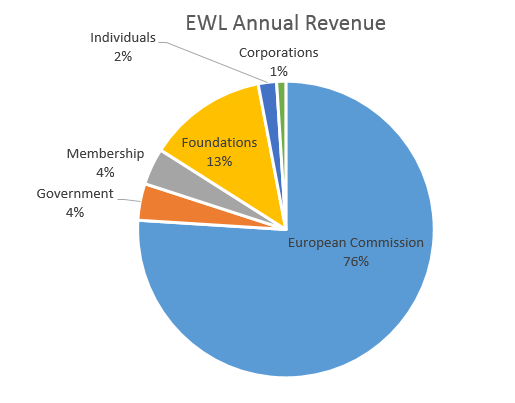[European Commission, 22 December 2011] The European Commission has today adopted guidelines to help the insurance industry implement unisex pricing, after the Court of Justice of the European Union ruled that different premiums for men and women constitute sex discrimination. In its ruling on the Test-Achats case on 1 March 2011, the Court of Justice gave insurers until 21 December 2012 to treat individual male and female customers equally in terms of insurance premiums and benefits (MEMO/11/123). Vice-President Viviane Reding, the EU’s Justice Commissioner, met with leading EU insurers in September 2011 to discuss how the industry should adapt to the Court’s ruling (MEMO/11/624).
Following consultations with national governments, insurers and consumers, the new Commission guidelines respond to the need for practical guidance on the implications of the ruling. They aim to benefit both consumers and insurance companies.
“When the Court of Justice issued its decision in the Test-Achats case on 1 March this year, I promised that the Commission would help insurers and consumers adapt to the ruling,” said EU Justice Commissioner Viviane Reding, the Commission’s Vice-President. “By adopting these guidelines a full year ahead of the deadline to comply with the court’s ruling, we have lived up to our commitment. It is now up to the insurance industry to ensure that there is a smooth transition to fully equal treatment of men and women in insurance. The Commission will remain vigilant in how the industry implements the court’s ruling. I expect that insurers that move to a unisex tariff first will have a competitive advantage on the European market.”
EU Commissioner for the Internal Market and Services, Michel Barnier said: “There have been some concerns among insurers as to the impact and consequences of this important judgment, in particular at this time when insurers as all other financial market participants face important challenges. I believe that these guidelines will be helpful for the industry and assist them in adapting their contracts and premiums to be able to ensure timely and full compliance with the judgment. This will be beneficial for both the industry and policyholders.”
The guidelines adopted today cover a series of issues which emerged from in-depth consultations with Member States and stakeholders. For example, they clarify that the ruling applies only to new contracts, in particular to contracts concluded as from 21 December 2012. They also give specific examples of what is considered a “new contract” to ensure a comprehensive application of the unisex rule at EU level from the same date.
In addition, the guidelines provide examples of gender-related insurance practices which are compatible with the principle of unisex premiums and benefits, and therefore will not change because of the Test-Achats ruling. These practices are very diverse, ranging from the calculation of technical provisions to reinsurance pricing, medical underwriting or targeted marketing.
Background
The implications of the judgment were discussed on 20 June with Member States and stakeholders at the Forum on Gender and Insurance set up by the Commission in 2009. European Justice Commissioner Viviane Reding also met leaders of European insurance companies on 21 September.
The Test-Achats ruling does not mean that women will always pay the same car insurance premiums as men.
At the moment, a careful young male driver pays more for auto insurance just because he is a man. Under the ruling, insurers can no longer use gender as a determining risk factor to justify differences in individuals’ premiums. But the premiums paid by careful drivers – male and female – will continue to decrease based on their individual driving behaviour. The ruling does not affect the use of other legitimate risk-rating factors and price will continue to reflect risk.
Gender is a determining risk-rating factor for at least three main product categories: motor insurance, life insurance/annuities and private health insurance. In all three categories, it is likely that a transition towards unisex pricing will have consequences on premiums and/or benefits at the individual level for men and women. Depending on the product concerned, premiums might increase or decrease for certain categories of consumers.
The insurance industry is competitive and innovative. It should be in a position to make these adjustments and offer attractive unisex products to consumers without unjustified impact on the overall price level. Price reductions resulting from unisex pricing should be passed on to consumers with the same level of fairness as price increases.
The Test-Achats case (C-236/09), which was referred by the Belgian Constitutional Court, concerned gender discrimination in insurance pricing. On 1 March 2011, the Court of Justice of the European Union declared invalid as from 21 December 2012 an exemption in EU equal treatment legislation which allows Member States to maintain differentiation between men and women in individuals’ premiums and benefits.
Council Directive 2004/113/EC on equal treatment between men and women in regards to the access to and supply of goods and services (adopted unanimously by the EU Council of Ministers) prohibits direct and indirect gender discrimination outside of the labour market.
Article 5(1) of the Directive says that “Member States shall ensure that in all new contracts concluded after 21 December 2007 at the latest, the use of sex as a factor in the calculation of premiums and benefits for the purpose of insurance and related financial services shall not result in differences in individuals’ premiums and benefits.”
Before the ruling, Article 5(2) of the Directive gave Member States a right to derogate from the unisex rule with regard to insurance contracts: “Member States may decide before 21 December 2007 to permit proportionate differences in individuals’ premium and benefits where the use of sex is a determining factor in the assessment of risk based on relevant and accurate actuarial and statistical data. The Member States concerned shall inform the Commission and ensure that accurate data relevant to the use of sex as a determining factor are compiled, published and regularly updated.”
All Member States made use of this derogation for some or all insurance contracts. Belgian law includes a derogation for life insurance in its national legislation. A dispute about the legality of Belgium’s derogation led to the Court of Justice’s Test-Achats ruling.
The Court found the exemption to the unisex rule in Article 5(2) incompatible with the purpose of the Directive as laid down in Article 5(1) and, therefore, with the EU’s Charter of Fundamental Rights. The Court ruled:
“Article 5(2) of Council Directive 2004/113/EC of 13 December 2004 implementing the principle of equal treatment between men and women in the access to and supply of goods and services is invalid with effect from 21 December 2012.”
Read the European Commission guidelines to insurance industry here.


